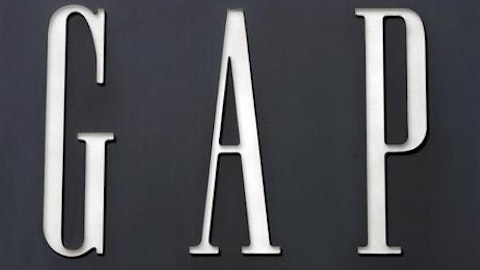
Lampert’s apologies and reasoning behind Sears Holdings Corp (NASDAQ:SHLD) continued dismal performance did little to reassure investors. What does Lampert think will drive Sears Holdings Corp (NASDAQ:SHLD)’s revenue growth in the future? An aging population!
Lampert believes health and wellness is key, with the wellness marketplace currently one of the largest and fastest-growing segments of the U.S. economy. Lampert plans to leverage the company’s assets in order to focus on the wellness growing market, making it customized, convenient and comprehensive. With Kenmore, Sears Holdings Corp (NASDAQ:SHLD) does have the leading home appliance brand, and its Craftsman brand is the number-one line of tools (besides being a brand of lawn and garden equipment).
Bruce Berkowitz of Fairholme Funds is also a big believer in Sears Holdings Corp (NASDAQ:SHLD), with 12.4% of his fund’s 13F portfolio invested in the stock (check out Berkowtiz’s big bets). Berkowitz, in a Fortune magazine interview, noted that he believes that with its real estate holdings, Sears is worth over $200 per share.
Bruce Berkowitz has said of his investment in Sears, “many despair that Sears seems unable to regain past retail glory, despite a conservative balance sheet and many valuable assets. In searching for instant gratification, most are missing key points.”
I have had an internal debate on which of the struggling retailers, Sears or J.C. Penney Company, Inc. (NYSE:JCP), will be the first to be forced out of business. As I’ve discussed before, Lampert has a good plan, but it will take time, but Penney is seeing a host of other issues; the company has been losing customers due to poor marketing and sales tactics. These missteps continue to reek havoc on Penney’s bottom line.
So what’s the bigger picture look like?
| Price to sales | |
| Sears | 0.14 |
| Wal-Mart | 0.55 |
| Target | 0.62 |
| Kohl’s | 0.61 |
| J.C. Penney | 0.33 |
| Debt to assets | Long-term debt to equity | |
| Sears | 19.40% | 66% |
| Wal-Mart | 28.20% | 63.40% |
| Target | 32.10% | 83% |
| Kohl’s | 32.20% | 73.50% |
| J.C. Penney | 36.80% | 103% |
Unlike billionaire Bill Ackman’s major investment in J.C. Penney Company, Inc. (NYSE:JCP), Lampert has much more control over Sears. Ackman owns some 16.5% of Penney’s outstanding shares (see Ackman’s latest moves). Yet, Lampert’s stake in Sears is 45%, and thus Lampert could enforce a number of asset sales at Sears and reallocate the proceeds to other areas.
Lampert’s hedge fund
Meanwhile, taking a look at what else Lampert and his $4 billion ESL Investments hedge fund has been up to, he failed to add to any of his positions and was actually dumping many of the stocks he owns besides Sears. A couple notable retail companies that he sold his entire stake in were Big Lots, Inc. (NYSE:BIG) and AutoZone, Inc. (NYSE:AZO). He also dumped his Safeway Inc. (NYSE:SWY) stake, 99% of his Capital One Financial Corp. (NYSE:COF) shares, 42% of iStar Financial Inc. (NYSE:SFI) shares and 30% of his Genworth Financial Inc (NYSE:GNW) shares (check out Lampert’s portfolio).
Big Lots, Inc. (NYSE:BIG) posted last quarter results of $2.09, compared to $1.75 for the same quarter last year and beating consensus of $1.99. Part of what has helped Big Lots continue to weather a poor economic environment includes low cost structure and alignment of products with customer preferences. Going forward, Big Lots hopes to increase its store count in areas with better co-tenant mixes.
Bottom line
Lampert still believes in Sears, and he has Berkowitz as a believer. I believe that Sears is a long-term value play and a better one than J.C. Penney. Meanwhile, Lampert’s sell-offs of Big Lots and AutoZone could prove premature; I believe that both could move higher.
The article Is Billionaire Eddie Lampert Making Excuses? originally appeared on Fool.com.
Marshall Hargrave owns shares of J.C. Penney Company. The Motley Fool owns shares of Big Lots. Marshall is a member of The Motley Fool Blog Network — entries represent the personal opinion of the blogger and are not formally edited.
Copyright © 1995 – 2013 The Motley Fool, LLC. All rights reserved. The Motley Fool has a disclosure policy.


